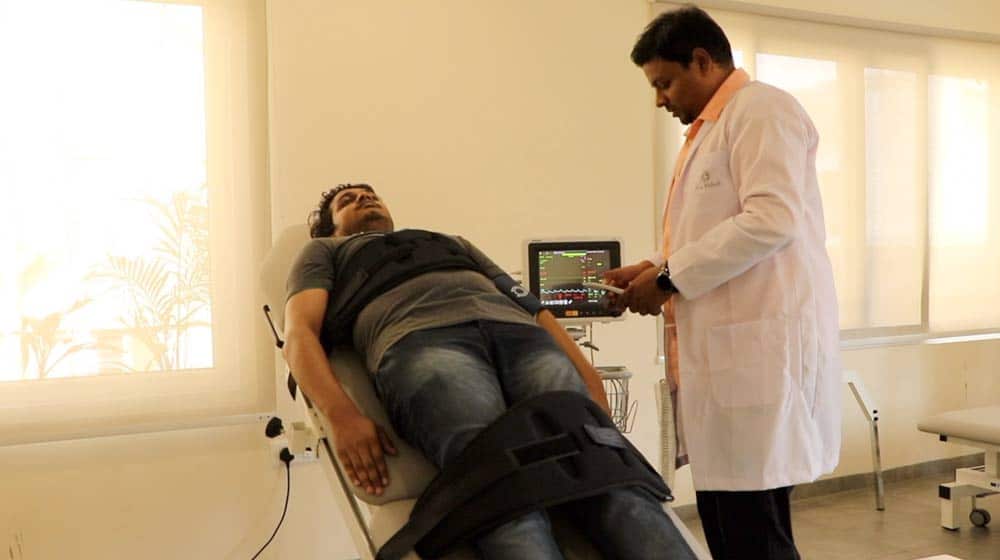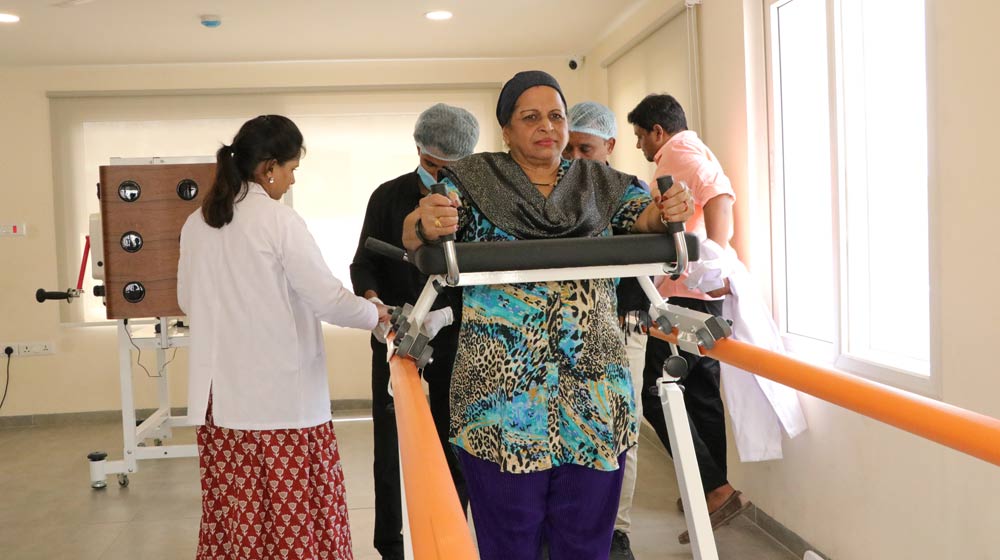Are you looking for top traumatic brain injury rehabilitation centers near you in Hyderabad? Our head injury recovery center in Hyderabad offers an expert brain injury program that focuses on rehabilitation to aid in the recovery process. While complete brain tissue recovery may not be possible, our dedicated team ensures early rehabilitation to help other parts of the brain take over functions and prevent complications like muscle shortening and weakness. With advanced facilities, personalized treatment plans, and compassionate care, our center is here to support you on your path to healing. Choose our conveniently located traumatic brain injury rehabilitation center in Hyderabad and start your journey towards recovery today. Contact us for a consultation and take the first step to improve your quality of life.
Therapy often begins at the hospital and continues at our specialized brain rehab center in Hyderabad, offering inpatient, residential, and outpatient programs. The extent of rehabilitation depends on the brain injury’s severity and affected area. Through thorough evaluations, including psychological testing, our team determines the damage’s type and extent. We then tailor a personalized rehabilitation program to address lost functions. Success is assessed based on various factors like overall health, muscle strength, functional ability before injury, and more, ensuring a successful recovery journey.
The Road Back to Health
We have the experience of highly skilled doctors, committed therapists, and a sophisticated facility to assist patients return to their previous lives as soon as possible. The following therapies are provided to patients during rehabilitation:
- Physiotherapy
- Occupational Therapy
- Swallow and Speech Therapy
- Training for the Bladder and Bowel


Our team
- Our team specializes in physical medicine and rehabilitation. He or she monitors the whole rehabilitation process, handles medical rehabilitation issues, and provides medication as needed.
- Occupational therapists assist people in learning, relearning, or improving skills needed to accomplish daily tasks.
- Physical therapists assist with mobility and relearning movement patterns, as well as balance and walking.
- A speech and language therapist is someone who helps people improve their communication abilities and, if necessary, utilize assistive communication equipment.
- A neuropsychologist evaluates cognitive impairment and performance, assists the individual in managing behaviors or learning coping skills, and offers psychotherapy.





 Health Corp LLP
Health Corp LLP